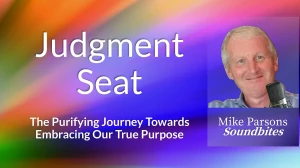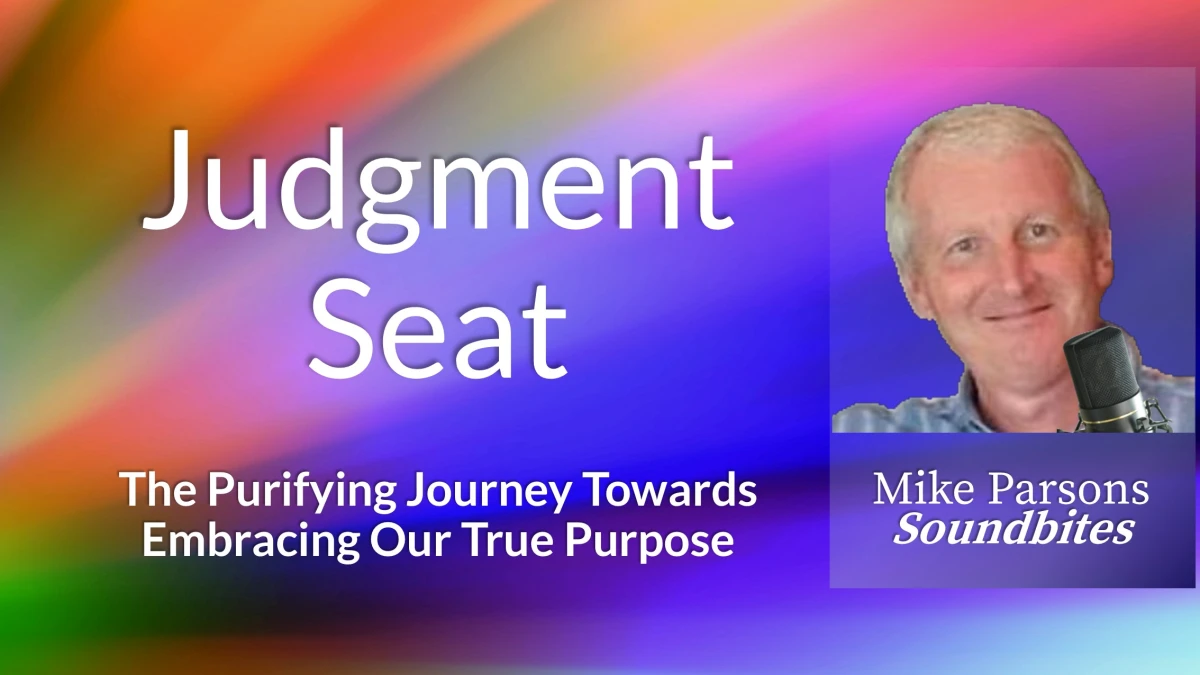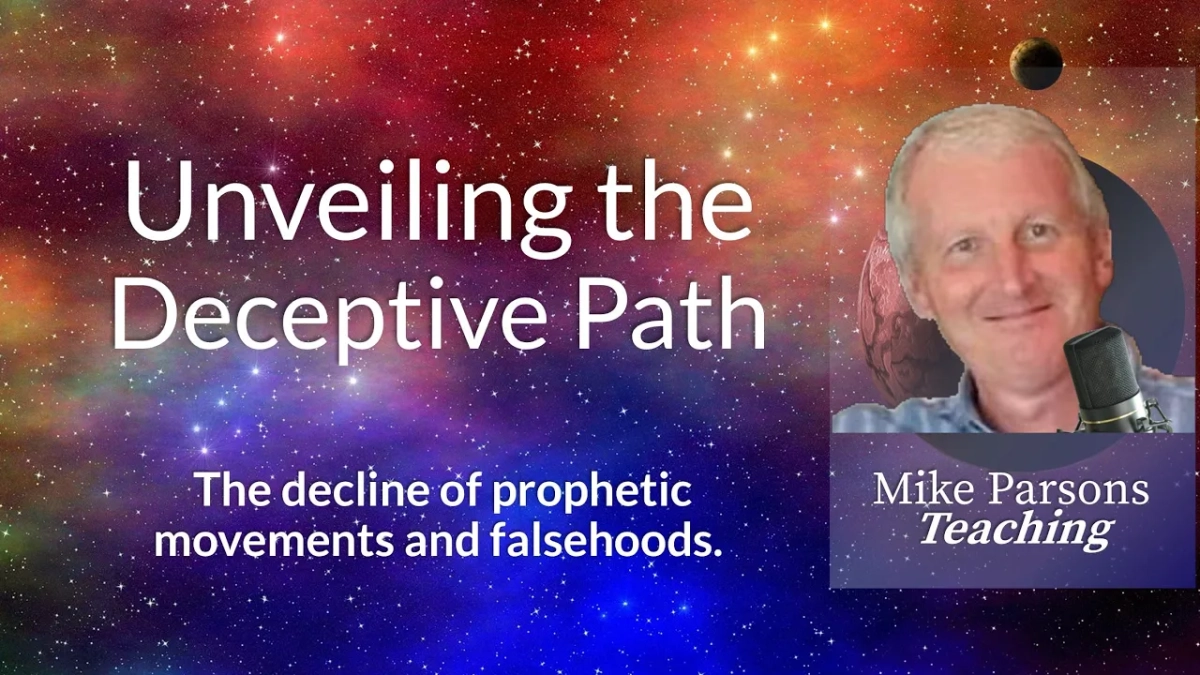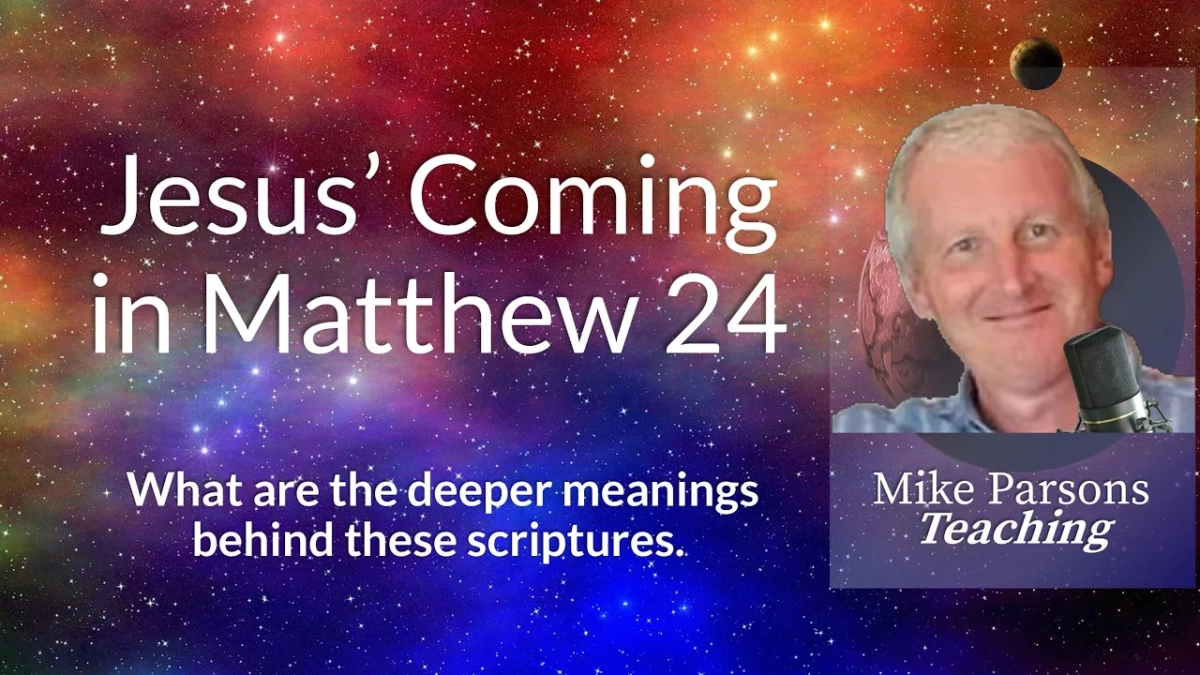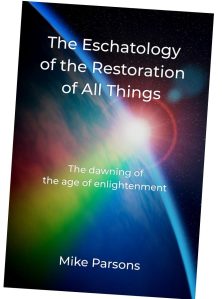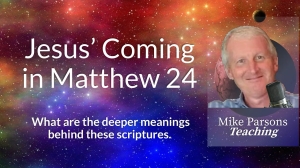Mike Parsons
with Jeremy Westcott –
Recent posts on ‘hell’ have prompted questioning among our readers. That was their purpose – not to stir up controversy for the sake of it but to encourage us all to examine our beliefs about this subject and where those beliefs have come from.
We have looked at the occasions on which the actual word appears in English translations of the Bible, and then in the last post I shared with you the series of encounters with God which led me down this route in the first place. But we promised that before we move on we would also examine the passages where the word itself does not appear, but ‘the Bible clearly says’ that some people go to a place of eternal torture when they die.
Weeping, Gnashing of Teeth and Outer Darkness
“Weeping and gnashing of teeth in the outer darkness! That is obviously a reference to suffering eternal physical torture in hell.”
Is that so?
Look at what happened leading up to Stephen being martyred in Acts 7:54: his accusers (members of the Sanhedrin) became furious and gnashed their teeth at him. Weeping and gnashing of teeth was an expression not of tormented pain and anguish, but of rage.
When the chief priests and the Pharisees heard His parables, they understood that He was speaking about them (Matt 21:45). The only reason they did not seize Jesus then and there was because they were afraid of the public outcry.
It was not the general mass of humanity that Jesus was speaking of when He talked about gnashing of teeth and the outer darkness in Matt 8:12, 13:42, 13:50, 22:13, 24:51, 25:30 and Luke 13:28. It was this group of self-righteous individuals who would find themselves outside the covenant they were so sure was their birthright. In that ‘outer darkness’, having failed to heed Jesus’ warnings, they would respond with defiant anger.
Sheep and goats
Then they will go away to eternal punishment, but the righteous to eternal life (Matt 25:46).
To be fair, you can understand why people tell us ‘the Bible clearly says…’. Our English Bibles certainly seem to. But we need to look at the Greek words used by the original writers of the New Testament books.
Firstly, what do we understand by ‘punishment’? Kolasis is the word used here, and it means ‘correction’, not ‘retribution’. Greek had a word for retributive punishment, timoria, which is never used of God in the New Testament. God’s discipline is always restorative.
Secondly, the Greek language had no word for ‘eternal’. They could have invented one if they had wished to: the language was exceptionally well-suited to building new words from component parts. They did not need the word because they did not have the concept. The root of the word used here, aionios, is ‘age’. For Greek speakers, an aion could mean a lifetime, a generation, or a longer period of time – but always of finite length. So not never-ending, not forever and ever, not eternal.
“Ah, but the same word appears in both halves of this sentence, and since ‘eternal life’ is everlasting, then the punishment must be, too.”
That depends on what aspect of the life we focus on when we read ‘eternal’. Surely it is not primarily the length, but the quality. The life being promised is the-God-kind-of-life: and the punishment therefore is the-God-kind-of-punishment: restorative and corrective, not retributive.
There are other reasons to treat this passage with caution, too. The sheep and goats in the parable are nations, not individuals. The criterion for escaping ‘eternal punishment’ is good works, not faith in Jesus. So if you are prepared to assert that whole nations will be sent to heaven or hell – based on their works, not on faith – then you can reasonably use this passage to argue your case for an ‘eternal hell’. So far I have not come across anyone in any theological stream who is prepared to do so.
“The eternal fire prepared for the devil and his angels? That’s clear enough.”
The more I consider this phrase, the more I am inclined to Chuck Crisco’s view that it refers to ‘the accuser and his messengers’, which is a perfectly valid translation of the Greek words used. The Law, the religious system and those who fought to preserve it were heading for the fires of the Temple Mount and Gehenna at the end of the Old Covenant age (aion) in the destruction of Jerusalem by the armies of Rome (AD70).
But if that is a step too far for some, let’s consider the purpose of fire. The Greek word is pur, from which we get words like ‘pure’ and ‘purify’. Jesus came baptising with the Holy Spirit and with fire and Paul said that everyone’s work will be tested with fire. I believe we will all go through the fires of purification to restore us to our original design and identity as sons by removing anything that distorts that image. We can engage with that fire now, or wait until we die (I advise option 1). There is a fire which awaits everyone who has not gone through it already but it is for purifying and correcting, not for destroying. It is the consuming fire of God’s passionate love. And my testimony is that even those who did not accept Jesus while alive will still get to choose when they experience that fire after death.
So what was Jesus’ point in this story of sheep and goats? ‘Brothers’ was a term used by Jews to refer exclusively to other Jews. Again (as throughout these chapters of Matthew’s gospel) I would suggest that in His love He was setting out a warning to the religious-yet-unbelieving Jews, especially the leaders, who instead of serving ‘the least of these my brothers’ (the believing Jews) would imprison and kill them instead.
Lazarus and the rich man
We touched on this before, and for an in-depth look into this parable we recommend Brad Jersak’s analysis in Putting Hell Back in the Handbasket.
The context of Luke 16 is all about wealth and true riches. In the verses immediately preceding this parable Luke tells us that the Pharisees were lovers of money. Jesus is not offering a treatise on the afterlife, but a warning about putting your trust in riches and failing to help the poor. Jesus quite literally means that the rich and poor of that age will see a reversal of fortunes in the next. Losing your soul for temporal gain is the cost of materialism and the results of living a DIY self-righteous life (Matt 16:26).
Abraham’s bosom is not a biblical phrase but a mythological or cultural one found in the Babylonian Talmud. Jesus is using a culturally accepted idea as the background for his story.
Aspects of the story make a crass literalism awkward: how does the rich man communicate with Abraham across the chasm? Does everyone there have a direct line to the patriarch? Does someone being incinerated in a furnace care about thirst? Are these literal flames? And since hades precedes the resurrection of the body, do we have literal tongues with which to feel thirst? Is this also the literal Abraham? Do the millions in his care take turns snuggling with him? Or is his bosom big enough to contain us all at once? How big he must be! And so on into implausibility. Taking the parable seriously means we mustn’t take it so literally. (Brad Jerzak – Putting Hell Back in the Handbasket).
Do we think that when we are in heaven we will be able to see our loved ones in ‘hell’, talk to them but offer them no hope, yet be happy with that?
Eternal destruction, away from the presence
… when the Lord Jesus will be revealed from heaven with His mighty angels in flaming fire, dealing out retribution to those who do not know God and to those who do not obey the gospel of our Lord Jesus. These will pay the penalty of eternal destruction, away from the presence of the Lord and from the glory of His power (2 Thess 1:7b-9).
If you believe in hell as eternal conscious torment, the word ‘destruction’ does not work for you. If you believe in the annihilation of the wicked, the combination of ‘eternal’ and ‘destruction’ makes no sense. However you look at it, we need to delve deeper.
The words in bold are all poor translations: diké (translated penalty) means justice, judicial hearing, legal decision; the related word ekdikesis (translated retribution) means that which arises out of justice; aionion (eternal) we know means pertaining to the age; olethros (destruction) means the state of being lost, lostness; apo (translated away from and from) does indeed mean from, but in the sense of coming out of or coming from and not separated from. Matthew Distefano points out that the phrase Eternal destruction from the presence of the Lord (olethron aionion apo prosopou tou Kyriou) in 2 Thessalonians 1:9 echoes exactly that in Acts 3:19: Times of refreshing from the presence of the Lord (kairoi anapsyxeos apo prosopou tou Kyriou). No one translates that ‘times of refreshing away from the presence of the Lord’.
So Paul was encouraging the Thessalonians that there was a judicial decision about to come from the Presence of the Lord which would have a consequence for those who were persecuting them: it would involve a state of lostness pertaining to the age. Or you can read it as God’s consuming-fire-presence delivering a justice that totally ruins their lostness.
This is not about some future end of the world event or afterlife experience but what Jesus prophesied would occur in that generation (and did occur in AD70) – but even then, God’s justice is always restorative for everyone.
The Lake of Fire
Four verses mention the lake of fire in the Bible, all in Revelation 19 and 20. Revelation is an apocalyptic book, symbolic and cryptic in nature, the only one of its kind in the New Testament but very common in Jewish and Greek literature. Only those ‘in the know’ and immersed in the culture in which it is written will fully understand the symbolism. Symbols can represent multiple concepts. One thing is certain: apocalyptic literature is never intended to be read literally.
We can get clues about some of the symbols because they also appear in the book of Daniel, including the beast being cast into the blazing fire (Dan 7:11). Just as Daniel’s beasts were figurative, representing various nations, so too is the lake of burning sulphur figurative. The book of Revelation is not a prophecy for the far distant future but was an immediate warning to first-century Israel that just as Sodom and Gomorrah fell in fiery destruction, so too the Jewish religious system was in danger of ending in the same manner.
The ‘book of life‘ mentioned is a commonly understood concept in the Jewish tradition and refers back to the law where according to the Talmud this book is opened every Jewish new year on Rosh Hashanah.
In Revelation 20:14, we see Death and Hades thrown into the lake of fire. Here the lake of fire may well represent God’s (completed) triumph over evil, sin, the grave and death through the power of the cross. Many of the early church Fathers saw the lake of fire as a spiritual place where everyone in humanity was purged of their unbelief and sins so that they could eventually believe in God. I believe it is fed by the river of fire which flows from God’s throne.
And the devil who deceived them was thrown into the lake of fire and brimstone, where the beast and the false prophet are also; and they will be tormented day and night forever and ever (Rev 20:10).
Forever and ever is a poor translation of to the ages of ages. Brimstone (Greek: theios, closely related to the word for ‘God’) was regarded as having power to heal and purify. Basanizo (translated torment) is ‘testing with a touchstone’ (in other scriptures it is translated as tossed or battered by waves, straining at the oars of a boat, and being in labour while giving birth).
Conclusion
Enough! No matter how many objections we address, how many scriptures we dig into, we know that some will not be persuaded. These posts are really not intended for them but for those who discover that God is already on their case – and even they will probably come up with other verses or passages not included in this brief survey. There are far more comprehensive treatments of the subject elsewhere; we have referenced some of them in the text and below. But ultimately all of us are going to need to go to God, in whatever way we know how, and hear what He has to say to us about the questions we have.
Fire and passion
We can all experience the fire and passion of God’s love today for ourselves. Let’s not hide from it or try to avoid it.
Son, it is time for everyone to embrace the fire
to experience deeper love
and the purification that My consuming fiery love brings.
Son, call on Me to stoke the fires
and increase the intensity of the heat
to reveal hearts, minds and motives.
So I call for the purification of fire.
I call for the fire of love to penetrate the hardest, darkest areas of our hearts.
I call for the refiner’s fire to burn away the dross of self.
I call for the light to shine, to expose the things hidden because of shame.
I call for love’s overcoming power to reveal and break every chain tethering God’s people to the DIY path.
I call for the passion of God’s heart to be revealed in His wrath directed towards all brokenness and lost identity.
Let the consuming fire of God’s love burn in our hearts and minds to restore us to true sonship.
Recent articles from Freedom ARC
Older related posts
Resources on the topic of ‘hell’
These publications and websites raise issues we believe God is drawing to our attention today. We do not necessarily agree with all the doctrinal positions, conclusions or opinions of the authors.
Support Freedom ARC


Our Patreon patrons give a small amount each month and can join us for our monthly group Zooms, get exclusive or early access to Mike’s teaching and enjoy further patron-only benefits. Or you can use the blue button to contact us about making a one-time gift.
Thank you!
*Note Sadly, because of abuse by scammers we can no longer offer a ‘click to donate’ option. However, if you contact us, we will get back to you with a simple means of giving.

